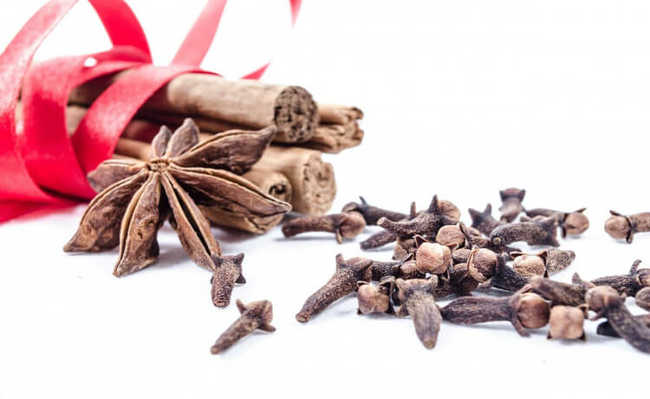Homemade repellent: easy and natural recipes
Nature offers a number of alternatives to use as a home repellent

They average 10 millimeters. But this small size does not do justice to the proportion of inconvenience they can cause. Yes, we are talking about mosquitoes, old acquaintances from our summer nights (but not only!). Who has never woken up at dawn cursing these little mosquitoes because of an uncomfortable bite, let them shoot the first repellent. Or the first insecticide. But the best thing is if it's a homemade repellent!
Making your own homemade repellent is an all-natural and inexpensive solution. This is a much more sustainable solution and as effective as the chemicals that are marketed. The homemade repellent takes only ingredients supplied by nature and is super easy to make , below we will explain how to make homemade repellent .
It is necessary to understand that the climatic conditions characteristic of the Brazilian summer actually favor the reproduction of mosquitoes. The heat speeds up their reproductive process, causing females to lay more eggs and eggs to hatch faster. In addition, the temperatures that are normally found by thermometers throughout this season are ideal for the functioning of the mosquitoes' organism: from 26ºC to 28ºC. When temperatures are below 18°C, they hibernate; above 42°C, they die.
However, it must be recognized that it is not enough to put all the blame on weather conditions and the habits of mosquitoes. The population itself and the authorities are largely to blame for these episodes of mosquito infestation. For example: polluted rivers facilitate the proliferation of mosquitoes. This is because in these rivers there is a very high concentration of organic matter necessary for its development. Not paying attention to sources of stagnant water and tall vegetation are also attitudes that contribute to the exponential growth of the mosquito population.- How to get rid of mosquitoes in a natural way
- Should we be concerned about pyrethroids from insecticides?
The Problem of Incorrect Insect Protection
The lack of awareness about mosquito infestation episodes that accompany heat waves ends up causing two problems: the adoption of “solutions” that in theory are very effective, but which in practice cause damage to health and the environment; and not adopting attitudes that could prevent these episodes.
The combination of these problems results, for example, in the constant use and negligent production of toxic household insecticides, which can cause allergies, delay children's neurological development, and poison pets, among other problems. In addition, the large-scale use of this type of product can induce mutations that make the mosquito become increasingly resistant, making its control difficult.
The problem with repellent lotions can be summed up in four letters: DEET, or diethyltoluamide. This is the main component of most repellents available on the market. DEET acts on sensors present in the antennae of mosquitoes and mosquitoes in general, and makes them not recognize the carbon dioxide that is released by humans during breathing. For that reason, they stay away. However, DEET can trigger allergic respiratory processes in the skin, mucous membranes and even liver damage in humans. So far, there is no consensus among experts about the real effects that this substance can have on human health. In addition, a study carried out by scientists in Great Britain proved that the dengue mosquito has already developed a biological resistance to DEET, due to the large-scale use of repellants that contain it in their compositions.
But, of course, prevention is better than cure. The National Health Surveillance Agency (Anvisa), aware of the lack of consensus among experts, approved new requirements for the sale of these products. First, it will be necessary to make clear on the labels what damage DEET can cause to the consumer. Secondly, it will be necessary to show the instructions for use, noting that the product should only be applied three times a day, especially in the case of children aged 2 to 12 years. Finally, companies are prohibited from using images that appeal to children. This measure aims to prevent accidents, since such images arouse the interest of children, who may try to apply the product on their own and even ingest it.
An alternative to not harm the environment and contribute to the control of this infestation that grows throughout the summer is to grow plants that are naturally repellent to mosquitoes and other insects. Among them we can mention lavender, mint, basil and citronella. To learn more, visit the article "Six types of plants work as natural insect repellents".
Another alternative is the repellent lotion that, during these periods, always have a place reserved on the shopping lists, along with the insecticides. The vast majority of people may find the use of repellent lotions something that will protect their family. But you have to be careful, especially when it comes to children. That's why making homemade repellent is a good option to get around this path.
Icaridin
When the French army was on a mission to French Guiana in the 1990s, malaria caused more casualties among soldiers than any enemy. The French army then commissioned Bayer to research and develop a repellent with greater military power: that is how Icaridina was created. Also effective against the dengue mosquito, the repellent creates a shield four centimeters thick on the applied area, and is emanated from the skin for 10 hours straight (DEET acts for 20 minutes with high efficiency). In Brazil, there are already repellents with the substance on sale. Another issue is that repellents composed of DEET need 30% to 50% concentration to ensure their functioning. Icaridin should come in a maximum concentration of 20% to 25%, numbers recommended by the World Health Organization (WHO).
Unfortunately, regardless of the composition, most commercialized versions have perfume, which has the opposite effect of attracting insects, not repelling them. In any case, it is recommended to apply abundantly on all exposed parts every four hours or when in contact with water. Always avoiding, of course, reaching mucous membranes, eyes, mouth and nostrils. Repellents without harmful chemicals made from citronella have a short effect - but making citronella candles is a good option to use indoors, as this way the substance will have a continuous action in the environment. another way to keep mosquitoes out of the house is to put five drops of citronella essential oil in a diffuser. Using garlic and vitamin B to repel insects is a big myth, not scientifically proven.
In any case, and in the absence of consensus, an alternative to avoiding DEET and other insecticides is good old-fashioned do-it-yourself. O eCycle portal selected some tips that can help you protect yourself from mosquitoes.
Why do it yourself with bug spray?
Producing yourself what will be consumed is a sustainable attitude that, in addition to being economical and preserving your health against doubtful substances, also helps the environment.
Repellent lotions and insecticides can be packaged in plastic bottles or in aerosols. When they run out, the packages are left in the environment.
As is known, plastics generate a large volume of waste and its degradation can take over 100 years. Aerosols, on the other hand, can facilitate the application of repellents, but they cause a serious environmental impact. This is due not only to the small amounts of carbon dioxide they emit (due to the transformation of the gaseous content into liquid), but also to the difficulty of recycling it, as these materials cannot be treated as common waste or common metal .
How to make homemade repellent
Check out some homemade repellent recipes that you can make at home without much effort.
Homemade and natural clove repellent
Cloves contain a substance called eugenol, which has insecticidal properties against mosquitoes and ants. Check out this easy-to-make homemade repellent recipe:
Ingredients
- 500 ml of grain alcohol;
- 10 g of cloves;
- 100 ml of body oil (eg dermatological almond oil).
Method of preparation

Combine alcohol and cloves in an opaque, dark pot with a lid. Leave it closed and out of contact with light for four days. After this period, stir the mixture well twice a day, once in the morning and once in the evening. Finally, strain and add the body oil, stirring slightly. Put your homemade repellent in a spray container, which can be purchased at homeopathic pharmacies and craft stores, and apply to the skin. This homemade repellent works for up to four hours. When applying, avoid contact with eyes and skin bruises and apply only three times a day. And remember: according to Anvisa, it is not recommended that children under two years old use repellents.
Homemade citronella repellent
Citronella is a powerful ally in protection against mosquitoes and other insects. The essential oil that is extracted from it and which is the basis of this recipe has 80 repellent components, including citronellal, geraniol and limonene. If you have a water diffuser, leave it in rooms up to 16 m² and drop three drops of citronella essential oil into the water every five hours. This will also help keep mosquitoes away. Another option is to make homemade citronella candles and leave them lit in the rooms: in addition to being an ecologically correct alternative, your house will be protected and with a pleasant aroma, similar to the aroma of eucalyptus.
Ingredients
- 150 ml of citronella essential oil;
- 300 ml of dermatological almond oil.
Method of preparation
Gather all ingredients and mix well. Finally, remember to store the mixture in a dark container and avoid contact with the sun. You can also use other amounts, as long as the ratio of two parts almond oil to one part citronella oil is always maintained. The application recommendations for this homemade repellent are the same as the previous one.
Homemade eucalyptus repellent
Eucalyptus essential oil is an excellent natural alternative for killing mosquitoes. To use it effectively you need an electric diffuser (in the case of the house) and a carrier oil for application to the skin. In the diffuser, you can use as many drops as you like, but five drops are recommended every four hours. To make the homemade repellent to apply to the skin, you will need, in addition to the essential oil of eucalyptus, a carrier oil - normally coconut oil performs this function.
Ingredients
- 1 level tablespoon of coconut oil;
- Three drops of eucalyptus essential oil.
Method of preparation
Mix well and apply a small amount to the inside of your forearm for allergy testing. In case of irritation, discontinue use and remove the applied mixture with the help of a cotton wool and some neutral vegetable oil, such as coconut oil, sunflower oil, grape seed oil or other vegetable oil that you know does not cause irritation . If you are not allergic to the mixture of coconut oil and eucalyptus essential oil, just spread the homemade repellent over your body. Ready! The homemade mosquito repellent you made will work in conjunction with the diffuser to wipe out mosquitoes in your home.
Discover eight tips to scare away mosquitoes without harmful chemicals in the channel's video eCycle portal on Youtube:
Another option is to buy a 100% natural repellent, they are better prepared and have other ingredients, but even so they are sustainable. The neem-based repellent can even be used on animals and plants, it does not present risks as it is natural, find out more in the article "Repellent based on neem, citronella and andiroba is indicated for animals and plants". You can find this and other natural repellent options at eCycle store.
You can also use several types of essential oils in a diffuser to keep mosquitoes out of your home. According to one study, oils derived from natural products that have the greatest potential as an insect repellent are citronella, cloves, vervain, cedar, lavender, pine, cinnamon, rosemary, basil, pepper and allspice.










